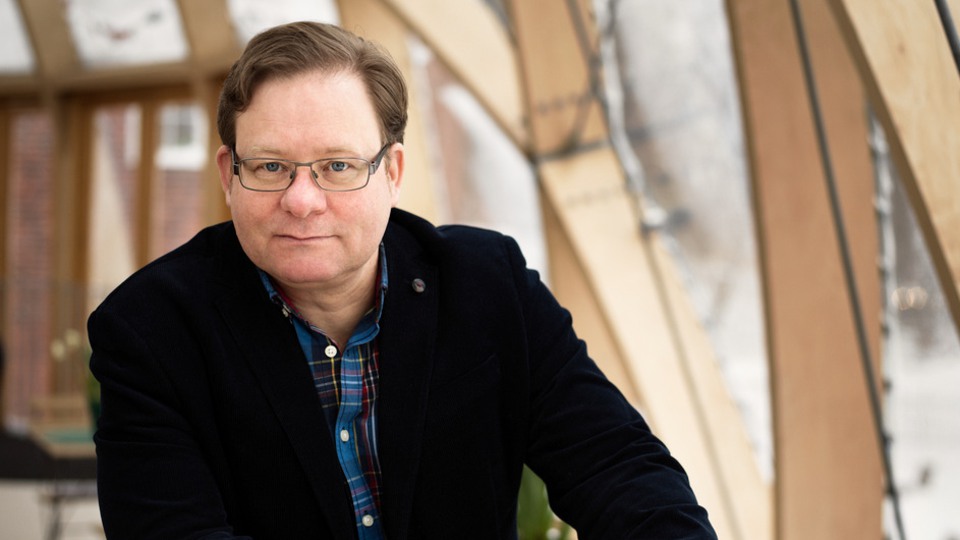
IVL life cycle expert appointed professor of building materials
KTH has appointed Martin Erlandsson from IVL Swedish Environmental Research Institute as adjunct professor of building materials with focus on life cycle analysis methodology. The reason for this is the need to break new ground when targeting sustainable construction with renewable building materials and building systems. A strong driving force here is the challenge of reducing the climate impact of the construction sector through increased resource efficiency.
"I am driven to research that can be applied practically and that will contribute to a more sustainable future. This means that knowledge about how to assess environmental performance with scientifically robust methods is an important part of my work – something I hope to bring to the table, both when it comes to research and teaching at KTH," says Martin Erlandsson.
The position as adjunct professor at the Department of Building Science at KTH is supported by the industry organization, Svenskt Trä. It is projected to increase research competence in environmentally friendly construction practices and life cycle analysis methodology, with a special focus on construction in wood. In addition to strategic research, the position involves supervision of doctoral students and degree examinees in wood-based hybrids, sustainability and life cycle methodology.
"Given the large number of students, in total about 300 per year in the programmes offered by the department, it is of great strategic importance for KTH to have access to a wider understanding around sustainability issues related to wood-based structures," says Magnus Wålinder, professor in building materials science at KTH.
"Wood construction continues to take market shares, and the entire construction sector faces a major restructuring. Sustainability issues are one of several factors driving this development. The entire industry breathes optimism and significant amounts are being invested to meet the increased demand for various wooden building systems. At Svenskt Trä we are pleased to help bring these issues into focus at our major universities as well," says Mathias Fridholm, director at Svenskt Trä.
Environmentally adapted construction and life cycle analysis
Martin Erlandsson has a degree in civil engineering in road and water construction and a doctorate in building materials. He has worked at IVL since 1998, primarily with issues around environmentally friendly construction and life cycle analysis.
One of the findings of Martin Erlandsson’s research in the construction field is that the construction phase accounts for an increasing share of the climate impact compared with operations. The climate impact of constructing modern apartment buildings is often equivalent to the subsequent energy consumption over 50 years. He has also shown that it is possible to almost halve the environmental impact of construction using alternative materials and known technology.
"One way to reduce climate impact is to increase the use of renewables such as wood-based building materials. Steel and various concrete binder agents will still be needed in the future, so there it will be necessary to make improvements. There is great potential for exploiting different material combinations able to meet both environmental and other functional requirements. This along with hybrid solutions is a research field that I will continue to work with during my professorship – something which harmonizes with many other research projects at KTH," says Martin Erlandsson.
Martin Erlandsson has also been a driving force behind the development of the Construction Sector's environmental calculation tool which is used to calculate the climate impact of construction from a life cycle perspective.
Another important field of research for Martin Erlandsson is biogenic carbon storage and carbon dioxide capture, as well as subsequent carbon storage (bio-CCS). Both bio-CCS and CCS are important technologies for enabling negative climate impacts and the Paris Agreement deems them essential if the necessary climate goals are to be met. But before we exploit these technologies, emissions in the production phase must be cut back on as much as possible.
"It is important that new knowledge leads to innovation and is implemented in the field. Much of my work in this area is around market-related environmental issues and how LCA can be used in practice in procurement," says Martin Erlandsson.
For more information, please contact:
Martin Erlandsson, martin.erlandsson@ivl.se, +46(0)10-788 65 30
Magnus Wålinder, magnus.walinder@byv.kth.se, +46(0)8-790 87 53
Mathias Fridholm, mathias.fridholm@svenskttra.se, +46(0)70-560 62 07
